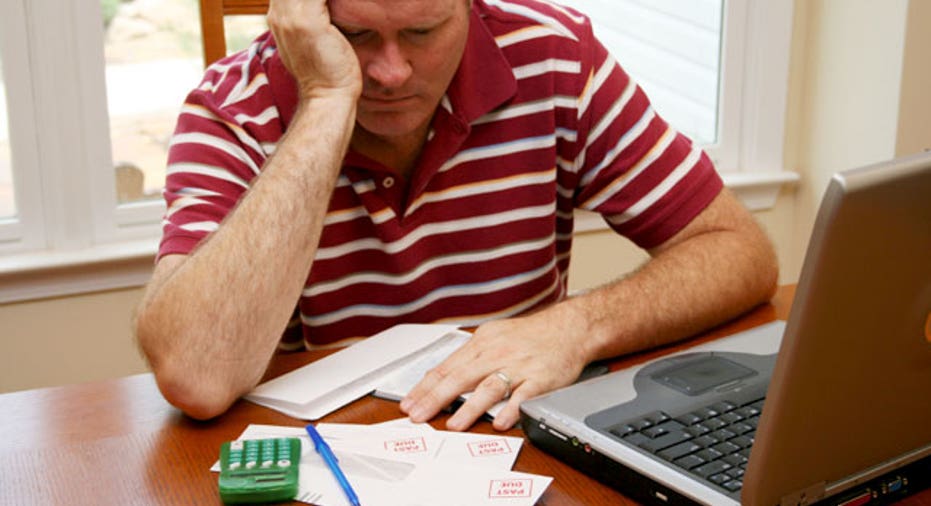Debtors Anonymous: What You can Expect

Ever wonder if Debtors Anonymous might hold the solution to your financial mess, but were too afraid to attend a meeting?
You will never know unless you go, but to help dispel your fears or negative preconceived notions you may have about DA, CreditCards.com outlines exactly what you can expect.
About the program
DebtorsAnonymous is a group of people -- called a fellowship -- who support each other in their quest to end compulsive debting. It's modeled after Alcoholics Anonymous,and like AA, you follow a series of 12 steps and attend regular meetings to deal with the addiction.
Yes, addiction. While not everyone who chronically mismanages their finances is an addict, some may be considered so.To know, DA offers potential signs, such as "living in chaos and drama around money: using one credit card to pay another; bouncing checks; always having a financial crisis to contend with."
Credit experts frequently direct people to DA. "We refer people to Debtors Anonymous all the time because we know it's legitimate," says John Ulzheimer, president of consumer education at SmartCredit.com. "The first step is to recognize and admit you have a problem and the second is to reach out."
The place and people
Meetings are frequently held in churches and public libraries. Group size ranges from fewer than a dozen individuals to more than 100.
Setting aside, it's the people you're most likely to notice. They seem like you. Well, at least some do, which can offer immediate relief. After feeling pretty isolated in your money problems,you find that you're neither strange nor alone.
The welcoming atmosphere can also be striking. To most, it's great, but some find it off-putting. "The warmth of the group scared me," says Carol M. (only first names are used) of her first Debtors Anonymous meeting. "I wanted to be separate." Not a joiner by nature, Carol M. says she"approached it like a tourist, with no intention of sticking around." Sixteen years later, she's still going to meetings. Whichever way you react, though,you'll certainly notice that those involved are committed and immensely grateful for the program.
If you worry that there will be pressure to join, that won't happen. In fact, there is no membership. You will,however, be encouraged to return. Debtors Anonymous recommends attending at least six meetings to determine if it's right for you.
The language
Be prepared for the DA lingo. People may introduce themselves using a variety of terms, such as "debtors,""compulsive spenders," or "under-earners." The phrase "working the program"will probably come up too. According to Beth M., that means people are"committed to using the tools to recovery. We talk specifically about keeping track of your numbers, and trying not to act compulsively."
While Debtors Anonymous is not a religious organization, a belief in a "higher power" is integral, so you'll hear it a lot. That can mean God or whatever you perceive a power greater than yourself to be. Carol M. says that this aspect of the program didn't sit quite right with her in the beginning. "I didn't have any religious background and prided myself in not believing in God. When people started talking about it, it kind of freaked me out. But I came back and realized I could create my own higher power."
The meeting
DA meetings follow a basic format. They typically open with an introduction by the leader and a welcome to those attending.The Serenity Prayer is read: "God grant me the serenity to accept the things I cannot change, courage to change the things I can, and wisdom to know the difference."
The preamble often comes next, which states the mission and purpose of DA -- essentially, that its primary purpose is to "stop debting one day at a time and to help other compulsive debtors to stop incurring unsecured debt." Various announcements and an overview of meeting rules might follow.
And then comes your part: newcomers are asked to introduce themselves. At this point you're in the group -- for the next 60 to 90 minutes anyway -- and are given a special welcome.
After that, a designated speaker may go into depth about his financial experiences and the way in which DA is helping.The meeting then opens for individuals to talk (or share, as it's called).Everyone has a few minutes each to discuss their struggles and successes with debt and the program. No one is required or even expected to speak.
The meetings can be emotional. Chances are you'll see tears and listen to painful stories. If you're not accustomed to people expressing themselves candidly, this can be shocking. But it's also what might be the most compelling. "Newcomers need to hear that the disease shows up in different ways," says Carol M. "We are all just trying to avoid debt."
The meeting concludes with announcements, collecting voluntary contributions (there are no dues, but if you'd like to contribute for the venue and other costs you may), and the closing statement, which is a reminder to keep everything you heard in confidence and to apply what you heard effectively. Standing and holding hands in a short prayer often ends a meeting.
Mystery, unraveled. Debtors Anonymous is not a panacea for everyone with a charging problem, but it's worth a try, as it can produce astounding results. "I was $25,000 in debt and paid it all off. I came in not knowing how to save money and now have $400,000in retirement as well as $20,000 in reserves," says Allan T. "I came in defeated and got hope."
More from CreditCards.com:



















